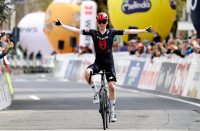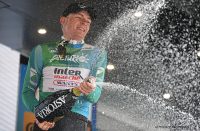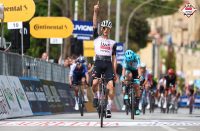Davis Phinney, the winningest cyclist in America in the 1980s has written an autobiography.
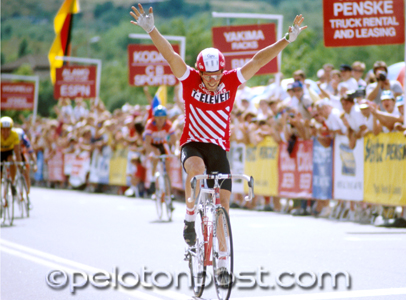
Davis was diagnosed with early onset Parkinson’s Disease about a dozen years ago. He openly shares his struggles and insights in this wonderful book. Davis had describes the light that came from the darkness, how he has used his bike race winning philosophies in his battle against the disease. He tells many stories from racing as well as shares touching family moments.There’s so much here that anyone can learn from and apply to their own lives.
Proceeds benefit the Davis Phinney Foundation to fund research on the disease.
Here are some excerpts from the book along with some photos from Beth Schneider who was at a number of the races Davis mentions in the book.
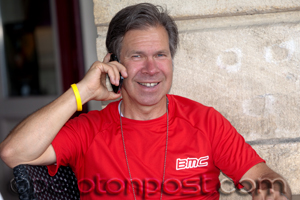
Jim Ochowicz is quoted in the book “Davis Phinney always brought great intensity to his racing which propelled him to the pinnacle of the sport and which now drives him as he confronts his disease. The “Happiness of Pursuit” is a fabulous story of courage.”
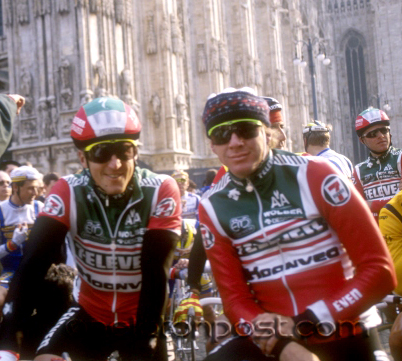
“It was my great fortune to have been a teammate of Davis who is one of the cornerstones of my personal passion and enjoyment of our sport.” -Bob Roll
One theme repeated in the book is “Phinneys don’t quit”. Davis says “Pursuit in this context means taking responsibility for your own happiness. It is the pro-active seeking out of what I have come to call “curative moments”. “…in bike racing, as in life, it’s imperative to never renoncer a l’espoir (to give up hope).”
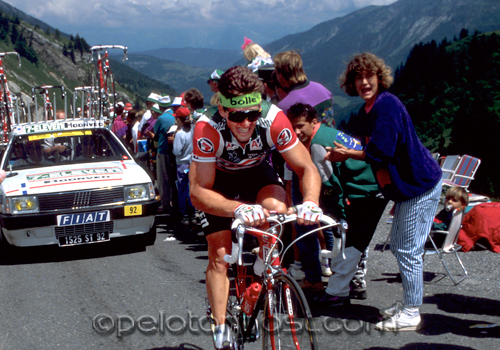
I was on the Col de Colombiere watching Davis suffer up the climb and thinking he wasn’t planning to be here and was expecting to stay in Boulder for the birth of his son. But he was at the Tour immediately afterwards and talks about this stage in the book.
“Twenty years later, I still draw on the lessons on July 11, 1990. I had no way of knowing then, that I would call on that experience so often in the decades that followed – not to improve my athletic performance, but as a tool to cope with this gathering infirmity. During my darkest moments, when I’m struggling not just to speak, but to think clearly; when it’s a challenge to get food to my mouth, when I’m shuffling and stumbling and hard-pressed to come up with a single positive “moment” for my end-of-the-day inventory, I think back to that alpine stage, the day I damn near came in last, but won.”
“I reflect on the need to get past one’s self-pity during those inevitable low moments; of setting goals, then fighting for them, no matter the odds.”
“I am not a quitter. I will not give a millimeter to this disease, will not let it take me easily. I will pursue life, pursue living, with grace and guts.”
“I want to emphasize the importance of hanging in there, fighting the good fight, not quitting. Don’t give up hope. If you can keep your focus and hang on until the NEXT mountain, the NEXT switchback, the NEXT finish line, there might just be a friend waiting for you with a dry towel and a bit of good news.”
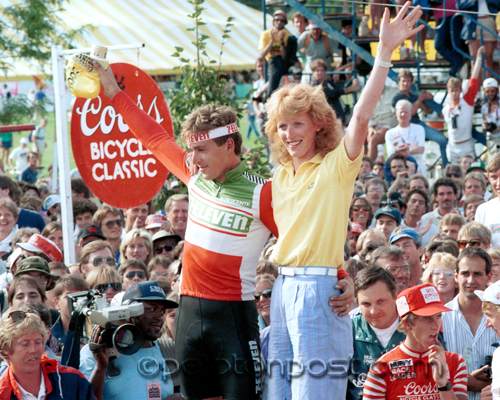
“Parkinsons arrived on my doorstep with ill news, yes-but also bearing gifts…In a sense PD opened my eyes. I’ve grown aware of – am much better at recognizing and calibrating the small victories and blessings available to us everyday.”
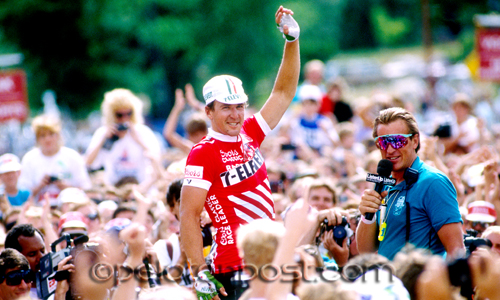
“I weathered the bad days, tolerated them, hunkered down and got through them in the knowledge that there was a good day out there, a day with my name on it.”
“And if you keep your head in the game, if you don’t let the losses eat you alive, you end up learning from them. And eventually you learn enough to reach the line first and throw your hands in the air.”
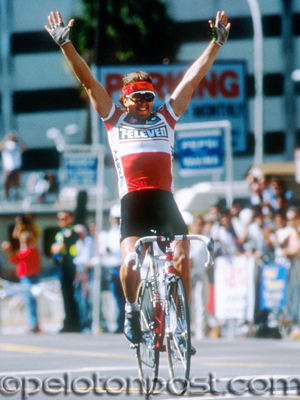
“It is this way in life. Hard work is key, but so is confronting and challenging weaknesses. It was infinitely more rewarding to fine-tune and nurture my strengths but I had to work on all aspects to grown and improve. And I was mentally tough. I tried to turn every reversal of fortune into a teachable moment, then used that lesson, that hard-earned experience, to get a little further up the mountain the next time. Or I just got pissed off and used my anger as fuel. Often I just had to get over myself, accept that good comes with bad. But as long as the good moments are more frequent than the bad, the overall trajectory was always pointing upward.”
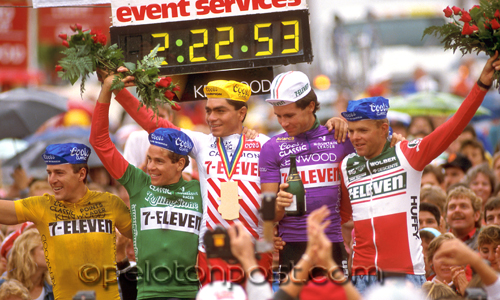
“I’d learned this greatest lesson: a chronic illness is not an excuse to stop living one’s life, but rather, a call to start living it, embracing it more fully.”

